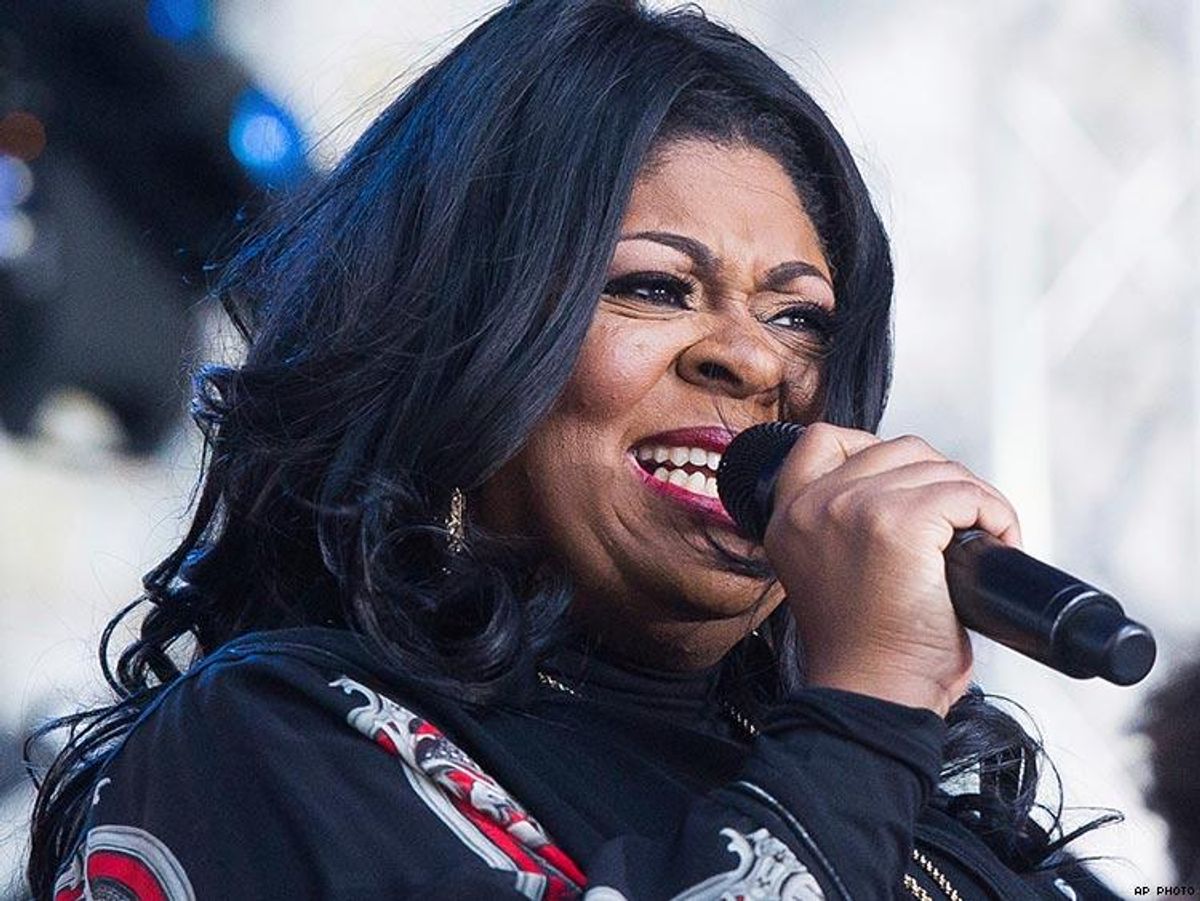Kim Burrell, a Pentecostal preacher and one of black gospel's darlings, was ousted from an appearance on The Ellen DeGeneres Showthis week, sending shock waves through the African-American community.
Burrell and Pharrell Williams were invited to promote their duet, "I See Victory," from the soundtrack of the inspirational film Hidden Figures. However, Burrell's homophobic homily about the "perverted homosexual spirit" prompted a tsunami of angry social media posts by African-American entertainers and figures -- both LGBTQ and straight -- not seen in previous antigay scandals.
The mother of out R&B phenom Frank Ocean, who had a song on his 2016 Blonde album that featured Burrell, condemned the gospel singer's hatred and asked whether she could be cropped out of her son's tune. Hidden Figures and Moonlight star Janelle Monae had a visceral reaction to Burrell's rant:
"I unequivocally repudiate ANY AND ALL hateful comments against the LGBTQ community," Monae wrote on Instagram. "We cannot sit Idly by nor will we speak silently when we are confronted with such violence against members of our community."
What has always made me shake my head in utter disgust is not only that most African-American gospel church choirs of any note have LGBTQ singers, but that they also actively seek us out as ministers of music.
"The virtuosity of gay singers, musicians, and composers has been the driving force in developing popular gospel choirs -- even chart-topping, Grammy-winning acts -- that make money for a church, help expand congregations, and raise the profiles of pastors," NPR reported in its 2012 segment "Blacks, Gays, and the Church: A Complex Relationship."
Gospel music undeniably has queerness in its roots that not only shaped the genre but continues to give gospel music its enduring vibrancy.
One of the black church's most influential denominations is the Church of God in Christ, which Burrell belongs to. It is the largest African-American and largest Pentecostal church in the United States. And as the largest black denomination in the country, it is also the loudest in rebuking homosexuality.
With many of the gospel music industry mega-stars coming from the Church of God in Christ, the church's charismatic worship style shouts to a black gay male queer gospel aesthetic every Sunday. And the church remains conflicted with itself.
Pastor Donnie McClurkin, an uber-star in the stratosphere of black gospel music, also belongs to the Church of God in Christ and struggles mightily with his sexual orientation.
"God did not call you to such perversions. Your only hope is Jesus Christ. Were it not for this Jesus I would be a homosexual today. This God is a deliverer," McClurkin exhorted with fire and brimstone at the the denomination's 102nd Holy Convocation International Youth Department Worship Service.
A similar message of gay = evil was pushed in Burrell's half-baked apology, in which she said, "I love you and God loves you but God hates the sin in you and me."
Burrell's theological qualifier of "love the sinner but hate the sin" is commonly heard in our churches. This message is deleterious to LGBTQ people of faith on so many levels:
It pimps our talent, yet damns our souls. Our connections and contributions to the larger black religious cosmos are desecrated every time homophobic pronouncements, like Burrell's, go unchecked in these holy places of worship. The black church becomes an institution on the "down low." Our silence, shame, and stigma around issues of identity, sexual practices, and the lack of pastoral care to people deemed "outsiders" are factors contributing not only to high-risk sexual behaviors and the transmission of HIV, but also to the silent killers of suicide and homelessness in my community.
The Church of God in Christ cannot deny that the church gets its Jesus dance on and shouts amen to a queer black male aesthetic every Sunday. No one knows this better than Burrell herself.
Interestingly, the Church of God in Christ was formed in 1897 by a group of disfellowshipped Baptists. I wonder if the guys were booted out because they were gay.
 REV. IRENE MONROE is a writer and theologian based in Cambridge, Mass.
REV. IRENE MONROE is a writer and theologian based in Cambridge, Mass.


 REV. IRENE MONROE is a writer and theologian based in Cambridge, Mass.
REV. IRENE MONROE is a writer and theologian based in Cambridge, Mass.











































































